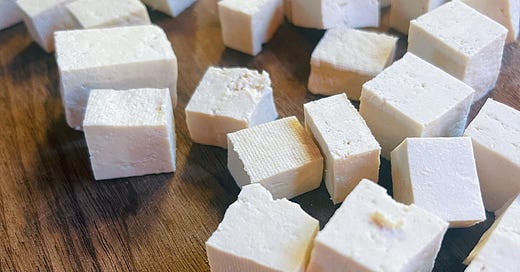Hello, everyone. I write to you from a little island off the coast of Sicily where I am taking a few days off. I am happy to report that my Airbnb actually does have a view of the sea, as advertised—I just have to stand on the corner of the patio to enjoy it. Salina is an island made entirely of two volcanoes that jut dramatically out of the ocean. The volcanic soil creates lush green meadows and wildflowers year round. Capers—one of my favorite brain-healthy foods—grow wild here! Yes, it is stunningly beautiful here and quiet, too, since it’s off-season. It’s the perfect place to soak up a slower Mediterranean pace of life.
Today we are talking about one of the most controversial foods of all time—soy. You may have read that soy foods increase the risk of certain cancers, make migraine headaches more frequent, or even cause feminization in men. Soy foods have long been thought to mess with thyroid health, fertility, and menstrual cycles. In fact, soy has been called an endocrine disruptor—meaning it can mimic estrogen in the body, which may lead to a hormone overload. Soy supplements have long been marketed to women for relief of hot flashes. But, is any of this based on good science? Read on.
Soy is a Legume
When I say “soy,” I mean whole or minimally processed foods from soybeans like tofu, tempeh, edamame, and soy milk, and fermented soy like miso paste and natto. Technically, soy foods are legumes, one of the brain-healthy food groups. Most people don’t eat soy in its whole, unprocessed form (like those I just listed), though; 90% of soy consumed in the U.S. comes ultra-processed versions made with soy protein isolates. These include protein bars, meat substitutes (such as Beyond Burger), sweetened and flavored soy milk and yogurt, and food additives.
Isoflavones are polyphenol compounds in soy
Studying soy is complex because it contains isoflavones—a type of flavonoid (categorized as a polyphenol) that binds to estrogen receptors. Isoflavones are present in other foods, too, like peanuts and beer, but in a much smaller amount than in soy. While decades ago the weak estrogen effect of isoflavones was thought to be harmful, the current research presents a more nuanced picture of how soy foods impact health. First, let’s dispel the most commonly held myths about soy.




